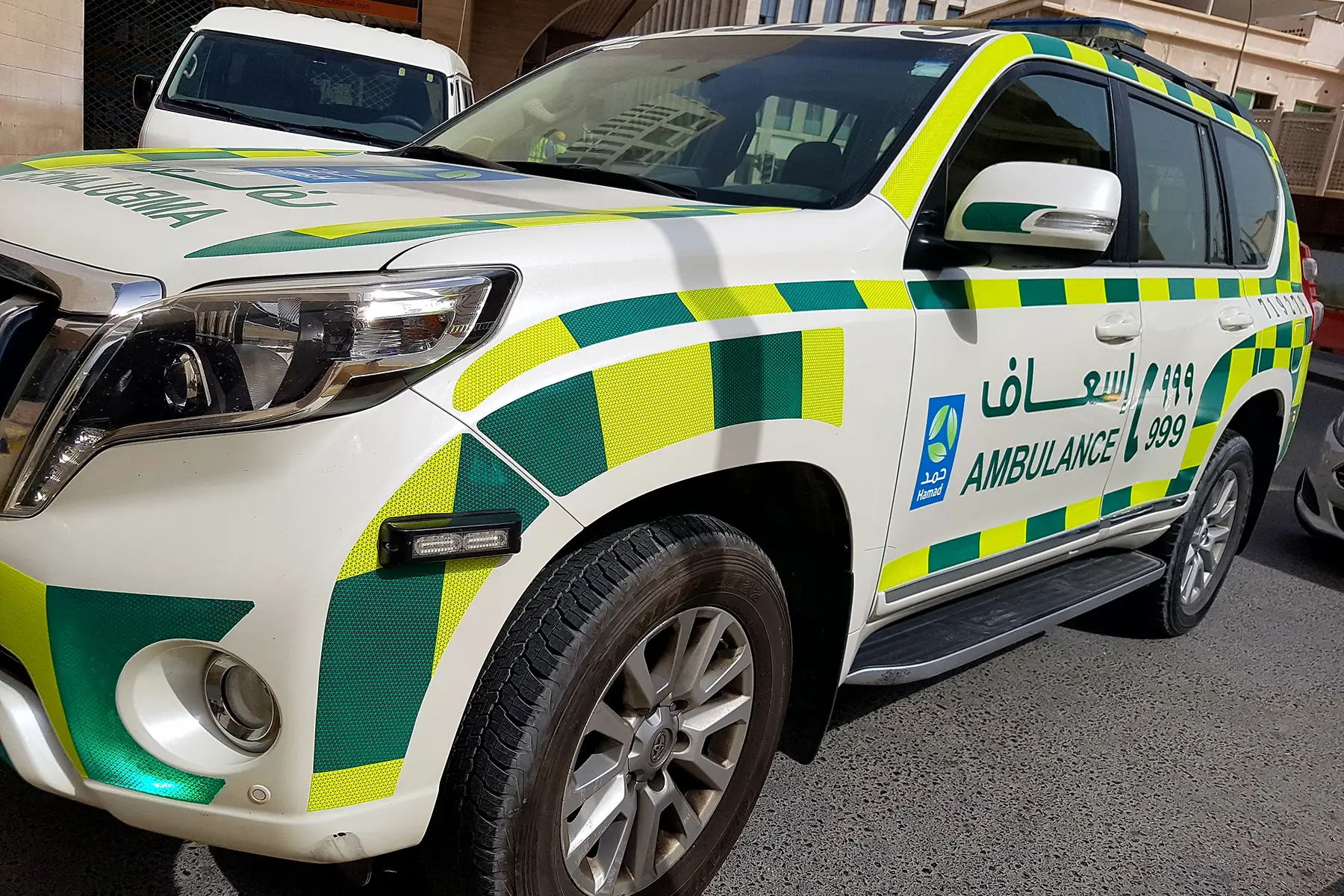Mental healthcare in Qatar has improved significantly in recent years, with new investments in services and awareness campaigns aiming to reduce stigma. However, cultural perceptions around mental illness still influence how care is accessed – particularly among both locals and expats who may hesitate to seek help. Fortunately, a growing number of clinics, support centers, and mental health professionals are available throughout the country.
To help you understand how to access mental health support in Qatar, this guide covers the following:
- How does mental healthcare work in Qatar?
- How to access mental health services in Qatar
- Insurance for mental healthcare in Qatar
- Psychologists, psychiatrists, and therapists in Qatar
- Addiction support services in Qatar
- Services dealing with eating disorders in Qatar
- Support for those with severe symptoms and long-term conditions
- Children and young people’s mental healthcare in Qatar
- Mental healthcare services for special groups in Qatar
- Emergency support and crisis lines in Qatar
- Useful resources
Cigna Global
Enjoy peace of mind while living in Qatar with Cigna Global’s long-term international health insurance plans (12+ months). Get tailored coverage, direct billing with many providers, complex case management, and global care on demand, with access to a network of 1.5+ million doctors, specialists, and therapists.
How does mental healthcare work in Qatar?
Mental healthcare in Qatar is delivered through a combination of public and private providers, with the country steadily expanding its services over the past decade. The government has placed growing emphasis on integrating mental health into its broader national health strategy, with dedicated facilities and programs aimed at increasing access and reducing stigma.

Public services are largely overseen and funded by the state and are free or low-cost for Qatari citizens. This includes the state-run Hamad Medical Corporation (HMC) and Primary Health Care Corporation (PHCC). For non-citizens, access typically depends on employer-provided insurance or private coverage, which determines whether services are partially or fully reimbursed.
While mental health remains a sensitive topic in Qatari society, attitudes are gradually shifting. Public awareness campaigns and education efforts are helping to normalize conversations around mental wellbeing and encourage more people to seek help when needed.
How to access mental health services in Qatar
Accessing public mental healthcare in Qatar is reasonably straightforward. For example, you can request a referral to the HMC services from your primary healthcare provider, hospital, counselor, or other health professionals. You will usually get an appointment within two weeks.
You don’t need a referral for services through the PHCC, which focuses on non-urgent, mild to moderate mental health challenges. You can book an appointment at a PHCC support clinic to see a clinician.
If you have private insurance or prefer independent services, you’ll need to contact the provider directly. They will advise you on how best to get a referral for their services.
Mental health centers where international residents can easily access treatment include:
- Weyak (Mental Health Friends Association) – this non-profit organization offers in-person, online, and telephone counseling
- The International Medical Centre – offers a wide range of psychological and counseling services
- Dr Aju’s Clinic – a consultant psychiatrist from the UK that treats patients with complicated psychiatric disorders, and offers couple and family therapy
- Al Ahli Hospital – they offer general psychiatry, child psychiatry, and geriatric psychiatry
Insurance for mental healthcare in Qatar
Qatari citizens and residents can apply for a health card to access the HMC’s public healthcare facilities or hospitals. This also provides access to mental health services at discounted rates. How much you pay out-of-pocket will depend on the clinic and the services, so be sure to clarify this when researching facilities. Many people also purchase private insurance for more comprehensive cover and options.
Private clinics may be more expensive but have shorter waiting lists and cater to the international community. Often, you can access private insurance through your employer.
You may also want to look into a plan that specifically works for expats and those living abroad. These insurance providers prioritize access to mental health professionals who work in English and treat the international community. Some international health insurance providers who offer coverage in Qatar include:
Psychologists, psychiatrists, and therapists in Qatar
Mental health professionals in Qatar include psychiatrists, psychologists, and psychotherapists. While their roles may overlap—especially in therapeutic approaches—each brings different training and expertise.
- Psychiatrists are medical doctors who can diagnose complex mental health conditions and prescribe medication. They are often involved in treating severe disorders like schizophrenia, bipolar disorder, and major depression.
- Psychologists typically hold a master’s or doctoral degree in psychology and focus on assessment and therapy. They are not medical doctors and do not prescribe medication (except in rare cases with additional qualifications).
- Psychotherapists (which may include psychologists, psychiatrists, or other trained professionals) provide various talk therapies such as cognitive behavioral therapy (CBT), trauma-informed care, or couples therapy.
You do not need a referral to see a mental health professional in the private sector. In most cases, you can book directly. Sessions typically last 45–50 minutes, and costs range from QAR 500 to QAR 800 per session, depending on the provider. You’ll usually need to pay upfront and then seek reimbursement from your insurer, so it’s wise to check in advance what your plan covers.
You can find professionals by searching through platforms like TherapyRoute.com, but for safety and legitimacy, it’s important to confirm that your clinician is licensed by the Department of Healthcare Professions (DHP) under Qatar’s Ministry of Public Health. Many practitioners are also members of the Middle East Psychological Association (MEPA), which promotes ethical practice across the region.
Therapy is available for individuals, couples, families, and groups. In larger cities like Doha, it’s possible to find English-speaking professionals and culturally competent therapists with experience working with expats.

Addiction support services in Qatar
Mental health services for addiction are available through both public and private healthcare providers. The main public provider is Hamad Medical Corporation (HMC), which offers specialized treatment through its Mental Health Services division.
HMC provides outpatient support and, in more severe cases, inpatient treatment for substance use disorders. Treatment is confidential, but you’ll need a valid health card and Qatar ID to access public services.
Private clinics also offer addiction counseling and therapy. For example, Al Ahli Hospital offers help with substance abuse disorders. These may include individual, group, or family sessions and are usually provided by licensed psychologists or psychiatrists.
Due to the sensitivity of this issue in Qatar, some residents opt for anonymous support groups. While options may be limited, you can find meetings for groups like Alcoholics Anonymous (AA) or Narcotics Anonymous (NA) in Doha. These are usually hosted discreetly and are open to people of all backgrounds.
When looking for help, it’s advisable to start with a mental health provider or general practitioner who can guide you through safe and appropriate treatment paths – especially given the strict drug laws in place. Support is available, but navigating it requires cultural awareness and caution.
Services dealing with eating disorders in Qatar
Unfortunately, Qatar is limited when it comes to professional expertise and services that support people with eating disorders. Consequently, finding help can be challenging. If you or someone you know is struggling with an eating disorder, you can ask your doctor about treatment options.
Young people can access private adolescent health services at Sidra Medicine. Alternatively, the state-funded Child and Adolescent Mental Health Services (CAMHS) offers eating disorder treatment programs. Waiting lists and out-of-pocket costs will depend on the service and the facility.
If you are looking for a support group, Overeaters Anonymous (OA) offers help with compulsive eating behavior, including bulimia and anorexia. There is no Qatar-specific website, but you can contact the organizer on 5512 7252 or [email protected].
Support for those with severe symptoms and long-term conditions
If you are struggling with severe mental health challenges, you can consult your GP about your treatment options. For example, the HMC Mental Health Service runs community mental health clinics that offer inpatient care, home support, rehabilitation, and outpatient facilities.
There is also a psychiatric daycare service for acute psychiatric cases who might need more intensive follow-up care than what is typically found in an outpatient program. This service supports the client’s mental health journey through structured programs, including talk and group therapy, regular outings, and life skills training.
Referrals typically come from the HMC’s Psychiatric Hospital or other mental health clinics. So, if you’re interested in knowing more, you should speak to your mental health provider.
Conversely, if you or someone you support are struggling and may need admittance to the Psychiatry Hospital, you can call the hospital directly on 16000. A mental health professional can advise you and explain how to gain admission and what happens in the treatment program.
Children and young people’s mental healthcare in Qatar
In Qatar, mental healthcare for children and young people is still developing. That said, there are some excellent choices if your child needs help.
The state-funded CAMHS provides support for young people living with anxiety and depression. It also works with neurodiverse children, who have Autism Spectrum Disorder (ASD), Attention Deficit Hyperactive Disorder (ADHD), and other learning disabilities, to help them negotiate a neurotypical world.

Sidra Medicine has a special children’s mental health department that offers children, adolescents, and perinatal services.
Costs will depend on the services provided and your insurance coverage. You can approach teachers, therapists, and other health professionals for referrals. Even an emergency department can refer children and young people. However, there can be delays in getting treatment, ranging from a week to just over a month after your referral.
Mental healthcare services for special groups in Qatar
Some population groups in Qatar may have unique mental health challenges and needs. Unfortunately, although the LGBTQIA+ community is one of the most vulnerable groups, there is no explicit mental health support for it in the country.
Other service providers that support particular sections of the society include:
- HMC also offers older adult mental health programs that can combine with geriatric medical care
- Mind Institute provides services for children and adults with special needs and disabilities

You can access these services with a referral from your doctor or, in an emergency, through a hospital. Costs will vary based on the facility.
Emergency support and crisis lines in Qatar
If you are experiencing a mental health crisis, you can call the national emergency number 999 or go to the nearest hospital. The hospital with be able to assess you and, if need be, admit or transfer you for inpatient mental health treatment.
Remember, if you need someone to talk to, you can call the National Mental Health Helpline at 16000, select your language, then press 4 for mental health services.
Useful resources
- Sidra Medicine – a private facility offering mental health services for children, young people, pregnant woman, and new mothers
- Weyak, Mental Health Friends Association of Qatar – offers free phone counseling in seven languages, 8009 395 or 4487 8722
- HMC Mental Health Service – provides information about public mental health services in Qatar
- You Mind Matters – Qatar’s first mental health website with information and resources to raise public awareness and reduce stigma






